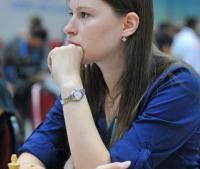
Preparing for a Game
Here and there we hear all types of things about “home prep”, but how do grandmasters prepare for their games in real life? The pre-game stage is often as important as the game itself. So, what is the most efficient way of preparing for your next chess match?
Let’s say you have looked up the pairings for the next day and found out who your opponent is. Different people have different approaches to the preparation stage. Let’s review the main ones.
1. Preparing in the evening
After returning from the game, you continue the chess work by preparing for the next game. The next morning you will only refresh and memorize the variations you have chosen in advance. Pros: your head won’t get too tired before the game. Cons: preparation requires a lot of energy. In the evening you are likely to be tired and miss something. Moreover, it will prevent you from taking a proper rest, which can affect your performance in the rounds to come.
2. Preparing in the morning
Most of the preparation is performed in the morning, while during the evening before the game you take a quick look at your opponent’s profile. Pros: you can rest well after the game. Cons: your head may get tired in the morning and crack during the game. Also, sometimes just before the round you realize that a certain variation doesn’t work (is flawed), and have no time to fix it.
3. Mixed preparation: in the evening & in the morning
This option works best for chessoholics with an excellent physical shape. Pros: by spending a lot of time preparing you get to know your opponent well and can choose the optimal variation. Cons: anyone may get tired all of a sudden, and that can affect your overall result in a negative way.
There is one more “secret” option – consciously give up on preparing before a game. This can be done for a number of reasons: when your opponent is well-known for playing all sorts of lines (unpredictable opponent); when you are sick/tired and can’t waste precious energy on anything. No matter what the reason, the aim is usually the same – to have a “fresh head” during the game.
It is important to note that the timing and intensity of preparation depend on your general wellbeing. If you are fit, motivated and willing to study, go ahead. When you are tired, disappointed, ill, it is vital not to be too hard on yourself.
After having played a few tournaments, people usually get a feel for what suits them best. For example, my personal choice is option #2. Also, due to being rather fragile, I try not to spend over two hours on preparing, otherwise it harms my play.
The next question that jumps to mind is “how do I prepare for a game?” Here is a brief overview:
- Scan the opponent’s games using a chess database or (at least) the games from the tournament – usually available online. Pay a lot of attention to his/her openings. Try to understand what positions he/she prefers, and which he/she plays badly. If you have enough time, try to compile a complete dossier on him/her – psychology, weaknesses and strengths in chess, current chess shape, physical shape, motivation, time management, etc.
- Depending on a variety of factors (tournament situation, opponent’s style, your own wellbeing) you can choose an opening variation (or a few of them, depending on how broad your opponent’s opening repertoire is).
- If necessary, study the variation in more detail, try to find new ideas.
- Rehearse the lines before the game (normally the higher the level of a player, the longer it takes).
Of course, the better you are prepared for the tournament, the less time you need to spend on your homework during the event itself. However, many pros are either lazy or too busy travelling from one tournament to another, so they have to catch up on chess theory between rounds.
Now let's take a look at another game of mine from the recent European Club Cup:
White didn’t get anything out of the opening. Feeling too relaxed about this, at some point I started playing rather carelessly and could have ended up in trouble. Luckily for me, my opponent missed that opportunity, and the game ended in a draw.






